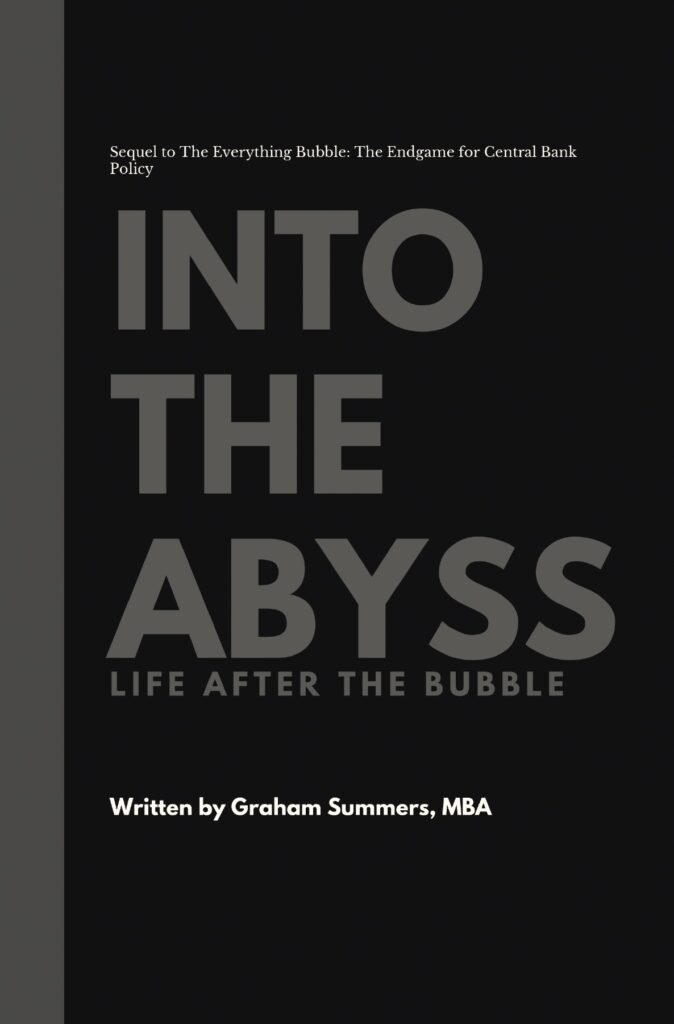The European Crisis is accelerating with every day. Indeed, at this point there’s a new major development (if not more than one) on a daily basis.
Rather than detailing every single news item, I’d rather address the larger concerns. This will better help you understand the larger systemic issues and how this is all likely to play out.
Greece, which we’ve been told was “saved” more than a dozen times, is back on the ropes and on the verge of needing a third bailout:
Greece will need more debt restructuring…EU officials
Greece is unlikely to be able to pay what it owes and further debt restructuring is likely to be necessary, three EU officials said on Tuesday, a cost that would have to fall on the European Central Bank and euro zone governments.
The officials said that twice bailed-out Greece would be found to be way off track by EU and International Monetary Fund officials who have been assessing the country.
Inspectors from the European Commission, the ECB and the IMF — together known as the troika — returned to Athens on Tuesday and will complete their debt-sustainability analysis next month, but the sources said the conclusions were already becoming clear.
It means Greece’s official-sector creditors — the ECB and euro zone governments — will have to restructure some of the estimated 200 billion euros of Greek government debt they own if Athens is to be put back on a sustainable footing.
http://www.reuters.com/article/2012/07/24/us-eurozone-greece-idUSBRE86N11D20120724
How this can be a surprise to anyone is beyond me. Greece was already asking for repayment extensions after its first bailout. Put another way Greece was already showing that it couldn’t meet its easier/ more lax debt repayment schedule back in 2010.
As a standalone item, Greece is now at the point of either leaving the Euro or defaulting. Both items are receiving coverage in the mainstream financial media, which tells us that high-level officials have plans in place for either eventuality (things don’t get out into the media in Europe until political “sources” plant them).
Greece’s Far-Left Leader Says Country Will Default
Greek’s leftist leader said his country would default, and has forecast that the ruling coalition government would look into returning to using the country’s old currency.
Syriza party head Alexis Tsipras said in an interview Saturday with Greek weekly Real News that the government will “soon present” the idea for Greece to stop using the euro and use the drachma, reported the Athens-Macedonian News Agency.
Tsipras said that any extension of the deal with the International Monetary Fund and the European Union is “essentially a longer rope with which to hang ourselves.”
Tsipras is the head of Greece’s anti-Euro Syriza party, which has grown rapidly in popularity over the last few elections:
| October 2009 | May 2012 | June 2012 | |
| SYRIZA’s % of Vote | 4% | 16.8% | 26.9% |
Indeed, in the most recent election, Syriza lost by less than 3%. With Greece now showing a GDP contraction of 20% (this is on par with Argentina in 2001 which was accompanied by systemic collapse and full-scale defaults), it is highly likely that should Greece hold another election, Syriza would take is Parliament. The man who says Greece should just default would then be in charge of things in Greece.
On the other side of this debate is Germany whose political leaders are increasingly calling for Greece to leave:
Angela Merkel’s coalition partners are lining up to demand a Greek exit from the euro, mounting pressure on the German chancellor and fanning market fears that Greece could shortly leave the single currency bloc.
Patrick Döring, general-secretary of Angela Merkel’s junior coalition partners the Free Democrats (FDP), told the regional Passauer Neue Presse newspaper that Greece could recover and regain competitiveness more quickly outside the eurozone.
“If Greece was no longer a part of the eurozone it could create trust on markets”, he said in remarks published Tuesday (24 July).
He is the latest of a number of top-ranking members of the two smaller parties in Merkel’s coalition to call for an exit for the benefit of Greece and to prevent contagion, mindful of the rising cost to Germany of bailing out weaker eurozone states.
Rating agency Moody’s acknowledged that burden on Monday, dropping its outlook on German debt from stable to negative.
http://drugi.euractiv.com/euro-finance/merkel-partners-call-greek-euro-news-514099
The Moody’s outlook change on Germany lets us know that this time around the debate is more than political posturing. If Germany loses its AAA status, then it’s GAME OVER for the EU: the German population, already outraged by the EU bailouts, and now facing a recession will NOT tolerate a credit rating downgrade.
As I’ve stated many times, Germany is THE REAL backstop of the EU. And it’s comprised its own solvency as a result: the country is only €328 billion away from reaching an official Debt to GDP of 90%, the level at which national solvency is called into question.
Moreover, that €328 billion has already been spent via various EU props. Indeed, when we account for all the backdoor schemes Germany has engaged in to prop up the EU, Germany’s REAL Debt to GDP is now closer to 300%.
This is the kind of “unquantifiable” research that we specialize in at Phoenix Capital Research: finding the insights and data that lurk between the financial statements and press releases… the insights that will really move the markets.
Doing this has allowed us to show our Private Wealth Advisory subscribers a REAL return of 34% over the last 12 months.
And we’ve done it without using options or futures, just stocks and ETFs which nearly ANY investor could buy using a discount brokerage account.
Just as importantly, we’ve accomplished this incredible return without taking on excessive risk. Indeed, we haven’t closed a single losing trade in over a year.
If this kind of high profit/ low risk approach to investing sounds like your cup of tea, we strongly suggest you try out a Private Wealth Advisory subscription.
To find out more about Private Wealth Advisory and how it can help you grow your portfolio in good times and bad…
Graham Summers
Chief Market Strategist
Phoenix Capital Research




